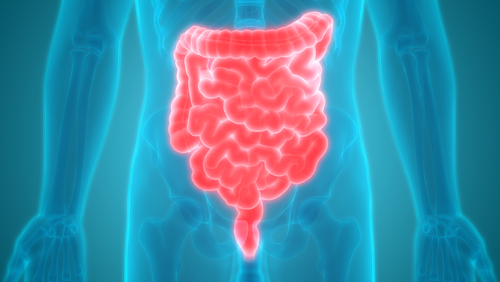Review Addresses Problems in Studies of the Gut Microbiome in Parkinson’s
Written by |

Studies on gut bacteria in Parkinson’s disease differ in their findings and important methodological details, according to a new review that highlights these differences and proposes strategies to mitigate them in the future.
The study, titled “Increasing Comparability and Utility of Gut Microbiome Studies in Parkinson’s Disease: A Systematic Review,” was published in the Journal of Parkinson’s Disease.
Although Parkinson’s is often thought of as a disorder of the brain, the gut likely plays an important role in the disease, but it has only been seriously studied in recent years. A number of studies have recently focused on how the gut microbiome — the bacteria that live inside the intestines — might impact Parkinson’s.
“As more studies investigate the gut microbiome composition in [Parkinson’s], it is important to compare the findings of these studies to get an overview of the changes present in the disease,” Jeffrey M. Boertien, MSc, a PhD candidate at the University of Groningen and co-author of the new review, said in a press release. “It is even more important to compare the methods used in the various studies. Especially as the studies report different and sometimes even contradictory results.”
The Parkinson’s Disease News Today forums are a place to connect with other patients, share tips and talk about the latest research. Check them out today!
The review focused on 16 studies published in the past five years. These studies included populations ranging from 10 to 197 people with Parkinson’s and 10 to 130 people without the disease. Notably, even at the level of selecting individuals to include, several studies run into methodological problems; many had large differences in age and sex distribution between the two groups, and “age and sex are well-known determinants of gut microbiome composition,” the review authors wrote.
The authors speculated that one reason for the differences may be the inclusion of spouses or other people living with Parkinson’s patients for use as controls. On one level, this may help account for environmental factors, which can influence the gut microbiome, but the authors stressed that “differences in age and sex distribution should be accounted for as potential confounders in all case-control gut microbiome studies.”
Major differences were also found between studies in how the gut bacteria were assessed — from what taxonomic levels were investigated (phylum, genus, etc.), to how samples were collected, to what bioinformatics techniques were used to analyze the data. All of these could account, at least in part, for different results found from study to study.
A number of differences between studies were found. While the researchers noted that, “several findings, such as an increase of Verrucomicrobiaceae and Akkermansia, and a decrease of Prevotellaceae were robustly replicated,” other findings were inconsistent or even directly contradictory. For example, some studies reported increased numbers of the bacterial groups Lactobacillaceae and Bacteroidetes in people with Parkinson’s, while others found the opposite.
In addition, the effect of dopaminergic medication on gut microbiome composition has not been studied directly, the authors said.
“Nonetheless, the effect of dopaminergic medication can be hypothesized to be substantial, as effects of various medications on gut microbiota composition have been described,” they wrote.
“There is currently no consensus on [Parkinson’s]-specific changes in microbiome composition and their pathophysiological implications due to inconsistent results, differences in methodologies and unaddressed confounders,” said review co-author Filip Scheperjans, MD, PhD, of Helsinki University Hospital.
As to strategies to help address this problem, some — such as more careful selection of study participants — are self-evident. More broadly, the authors suggested that greater transparency and sharing data, particularly raw data, could make it easier to draw broad conclusions: “public availability of raw sequencing data and sample metadata would allow for an integrative dataset of [Parkinson’s] microbiome studies that could address various possible confounders.”
“If we combine all data, it will be easier to distinguish changes that are associated with [Parkinson’s] from noise,” said Scheperjans. “However, further research is still required to increase our understanding of the possible role of gut microbiota in [Parkinson’s]. It is important to emphasize that no microbiota-based treatment for [Parkinson’s] exists to date. We advise [Parkinson’s] patients not to start self-treatment with probiotics or undergo fecal microbiota transplantation without consulting with their doctors in order to avoid potential harm.”
Still, exploiting the gut microbiome may be a potential strategy for the clinical management of the disease in the future, the researchers said.
“Specific changes might serve as a biomarker with which we can recognize [Parkinson’s] or specific subtypes of [Parkinsons’]. Since gut complaints can occur very early in the disease process, this might help to identify patients in the early stages of the disease, possibly even before the appearance of motor symptoms such as tremor and rigidity,” said Boertien. “If gut microbiota play an important role in the disease process, this might lead to new treatment options for [Parkinson’s].”
Several of the review authors disclosed potential conflicts of interest, such as owning patents related to the gut microbiome and Parkinson’s disease.


